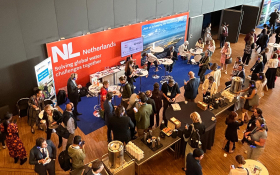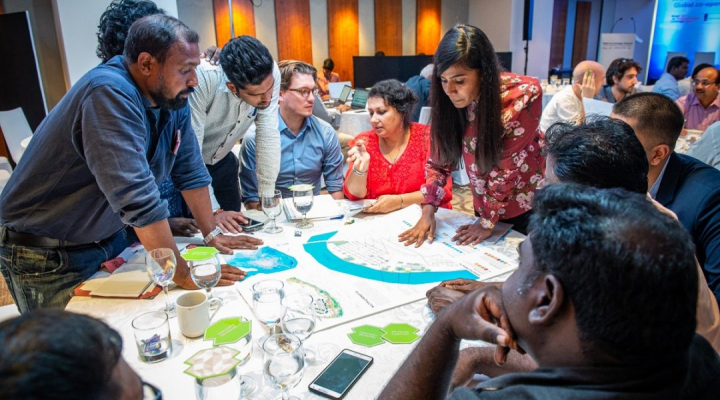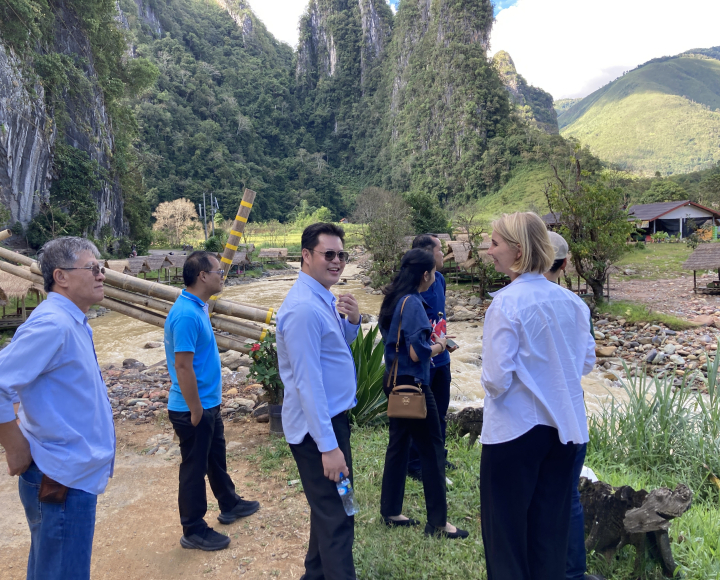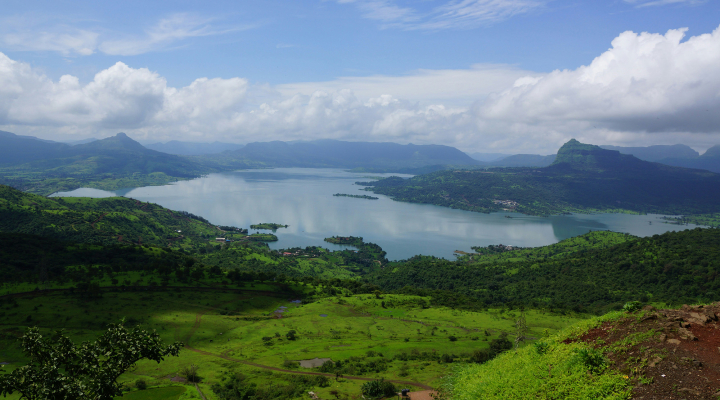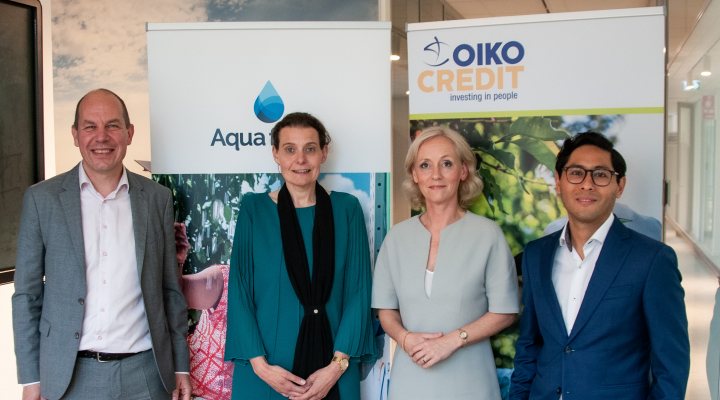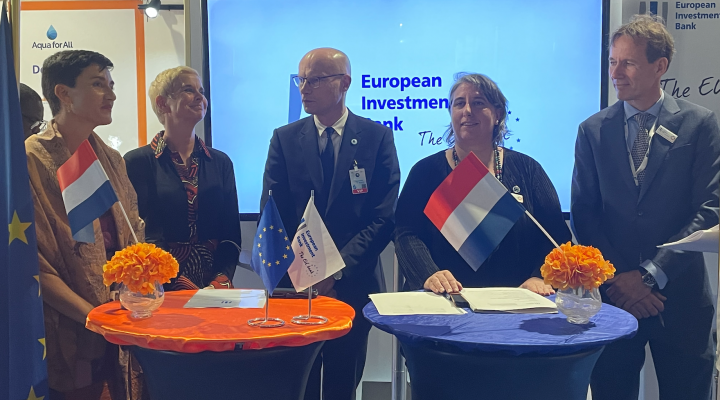
WWWeek at home: Valuing water goes beyond corporate economics
‘Working with authorities, local communities and river basin commissions to come to a sustainable water use in a whole watershed, goes beyond corporate water accounting’, concluded Ranu Sinha of the Global Water Partnership during the WWWeek at home session on Valuing Water.
Sinha encouraged corporate companies to step out of their comfort zones and look beyond their internal water stewardship and protect their water sources with other water users. The session was initiated by the Government of the Netherlands.
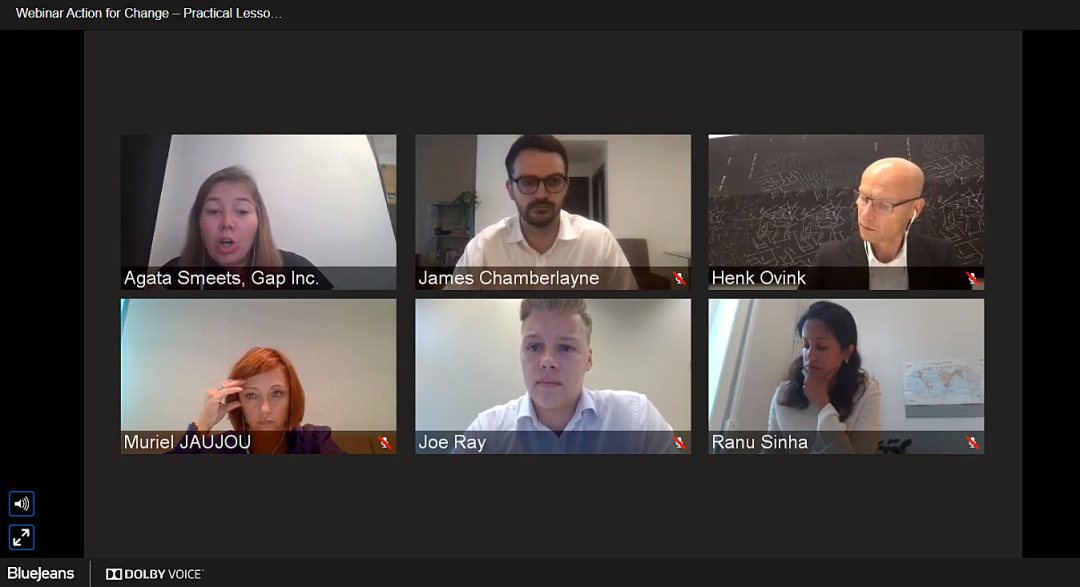

Beyond own corporate water risks
The session comprised three cases of corporations that are already attempting to make such steps outside their plants and try to value water more than just to de-risk the availability of water for their own operations.
Sustainability officer Muriel Jaujou at Danone looked back on 20 years of experience with water stewardships within the global food manufacturing. ‘We had the old way when we were looking at the CAPEX and OPEX for investments in water efficiency measures. Now we have the Water Use Monitizer that allows us to show our board of directors the value of proper water management in the whole watershed’, Jaujou explained.
Jaujou mentioned the lack of hydrological knowledge amongst the watershed stakeholders as a major barrier for progress. She noted that many watersheds often lack an appropriate water governance. ‘Our hydrologists first have to develop a certain local common understanding of the water cycle to move forward in the collaboration.‘
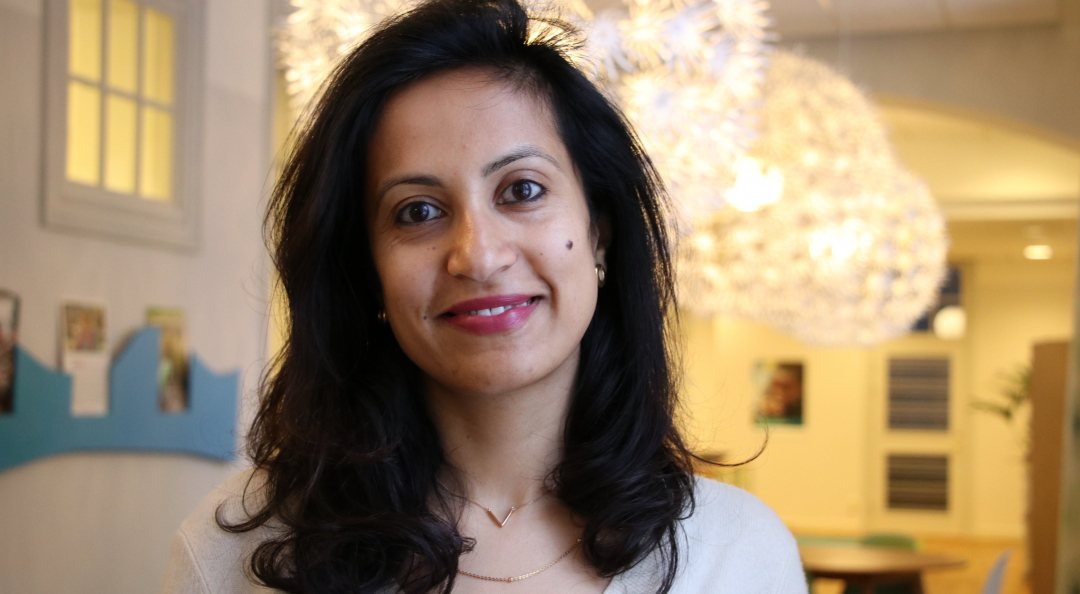

Picking up momentum
A second case was presented by Agata Smeets, Sustainability Sourcing Strategy Director at GAP that produces and sells fashionable clothing around the world. GAP set a target to reduce water usage at its factories, laundries and retail outlets by 10 billion liters by the end of this year. According to Smeets this water saving target picked up momentum and started to interest many stakeholders. ‘The conversation on our next step went to the top of our company and we are now trying to initiate a water saving programme for the whole textile industry. Next to that we have become aware that we have a responsibility not just for our own water savings, but also for the whole watershed where we operate in. We consider that as our next step.’
Wrapping up the session Ranu Sinha emphasised the importance of valuing water to establish sustainable water consumption at watershed level. ‘The most important step is to measure the impact of water consumption. But accounting is not enough. It is important to reach a higherlevel and include multiple values to drive water impact decisions', Sinha said.
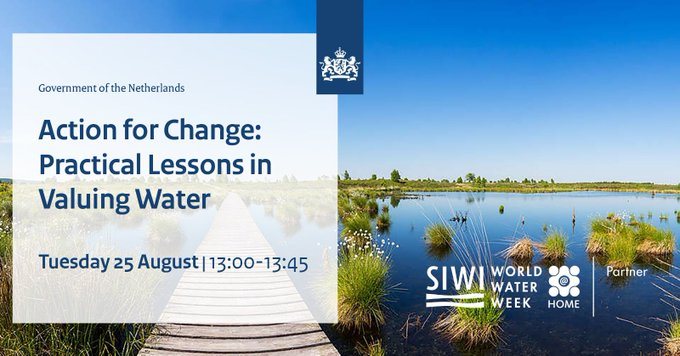

Five Valuing Water Principles
At the World Economic Forum in Davos in January 2019, the Valuing Water Initiative (VWI) was officially launched to showcase the implementation of the United Nations Valuing Water Principles in order to bring systemic change in the way water is valued in policy, practice, finance and behaviour and to inspire others to do the same.
The five principles are:
- Recognize and embrace water’s multiple values to different groups and interests in all decisions affecting water;
- Reconcile values and build trust – conduct all processes to reconcile values in ways that are equitable, transparent and inclusive;
- Protect the sources, including watersheds, rivers, aquifers, associated ecosystems, and used water flows for current and future generations;
- Educate to empower – promote education and awareness among all stakeholders about the intrinsic value of water and its essential role in all aspects of life;
- Invest and innovate – ensure adequate investment in institutions, infrastructure, information and innovation to realize the many benefits derived from water and reduce risks.
More background on the Valuing Water initiative (VWI) and the framework.
See the full programme on the website of World Water Week. The sessions are organised by different institutions and all use different procedures, so be sure to check beforehand if you need to register to join a session.




